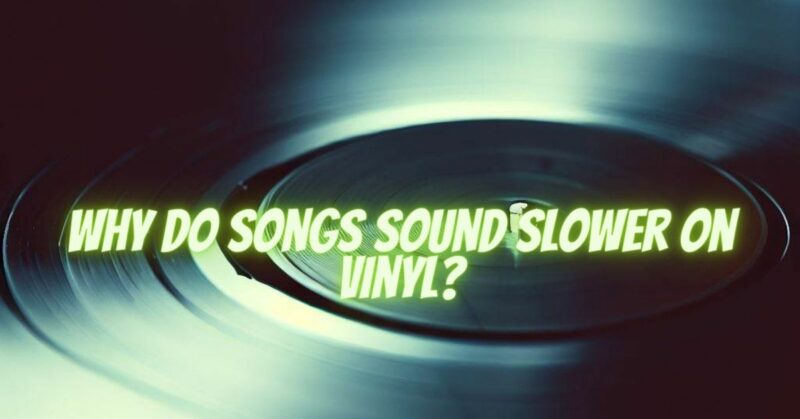Listening to music on vinyl records is often described as a unique and nostalgic experience. However, some vinyl enthusiasts may notice that songs played on vinyl sound slightly slower compared to digital formats. In this article, we delve into the factors that contribute to this perception and shed light on why songs may sound slower on vinyl.
- Turntable Speed Variations:
One primary reason for the perceived slower playback on vinyl records is turntable speed variations. Turntables rely on mechanical components and motors to rotate the record at a consistent speed. However, due to the nature of these mechanisms, minor speed fluctuations can occur. These variations, though minimal, can lead to a slight decrease or increase in playback speed, resulting in songs sounding slower or faster.
- Pitch Control:
Pitch control is a feature found on some turntables that allows users to adjust the playback speed. This feature is commonly used by DJs and professionals to match the beats of different tracks during mixing. However, if the pitch control is not calibrated correctly or unintentionally adjusted, it can affect the playback speed and make songs sound slower or faster than their original recordings.
- Groove Width and Inner Groove Distortion:
Vinyl records have wider grooves toward the center and narrower grooves toward the outer edges. When the stylus moves across the record, it covers more distance per revolution on the outer grooves compared to the inner grooves. This difference in groove width can impact the playback speed perception. Additionally, inner groove distortion, which occurs when the stylus struggles to accurately track the innermost grooves, can contribute to the perception of slower playback.
- Psychoacoustic Factors:
Psychoacoustic factors, such as perceptual biases and listener expectations, can influence how we perceive sound. The physicality and unique characteristics of vinyl records can evoke a different listening experience compared to digital formats. The tactile nature and analog warmth of vinyl can create a subjective perception of slower playback, as listeners may become more immersed in the music and pay closer attention to nuances.
Conclusion:
The perceived slower playback of songs on vinyl records can be attributed to several factors, including turntable speed variations, pitch control adjustments, groove width differences, and psychoacoustic factors. While these factors may contribute to the perception of slower playback, it is important to note that the overall experience of vinyl is multifaceted and involves various elements that contribute to its unique charm. Embracing the nuances of vinyl playback and appreciating the tactile and analog qualities can enhance the enjoyment of the music and the vinyl listening experience as a whole.

